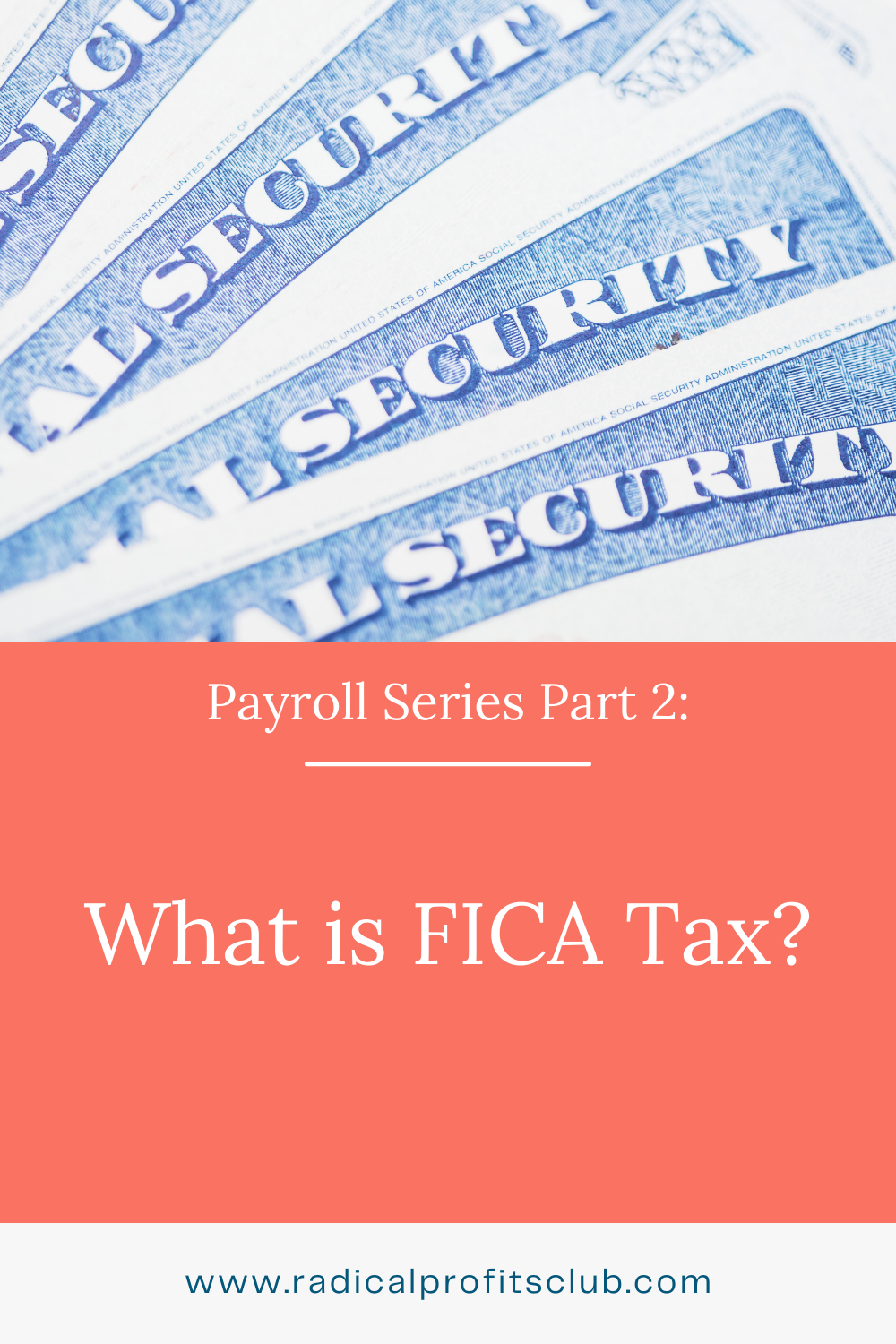Payroll Part 2: What is FICA Taxes?
This post is part 2 in our 5 part payroll series.
Part 1: Contractors vs Employees
Part 3: What is FUTA and SUTA Tax?
Parts 4-5 coming soon!
So you’re thinking about hiring an employee or have already started the process and you’re wondering what taxes you’ll be required to pay as an employer. We’re going to talk about these taxes in two different posts; today we’re covering the FICA tax.
What is FICA?
It’s an abbreviation for the Federal Insurance Contributions Act. This is a U.S. federal payroll tax that is deducted from every paycheck.
FICA is actually two different kinds of tax combined: Social Security tax and Medicare tax.
Who pays FICA - the employee or employer?
Giphy
Both! You split it 50/50. This is why as a business owner it often feels like you’re paying more taxes from your paycheck if you are on payroll because you are both employer and employee!
But with an employee, you will only be responsible for half of the FICA tax.
How much is FICA tax?
Your employee pays 6.2% of their gross wages (up to $160,200 in 2023) to Social Security tax and 1.45% to Medicare tax.
You, as the employer, also pay 6.2% to Social Security tax and 1.45% to Medicare tax.
Added together, FICA tax is a total of 15.3% of gross pay.
Why do we have to pay FICA tax?
The most obvious reason is because it’s required by the federal government, but maybe knowing where your money goes will help you better understand these taxes.
The money paid as Social Security tax doesn’t go into a personal account for you to draw from one day. Rather, it goes to pay Social Security benefits to retirees and other benificiaries today. However, how much you pay into Social Security affects how much you will be able to draw one day. And if you’re curious what that sum is, you can create a ‘my Social Security’ account to see how much you can expect based on your current pay.
The Medicare tax portion of FICA pays for Medicare Part A for people over the age of 65. This pays for things like hospital stays, nursing home care, hospice, and some home health services. One day you will most likely take advantage of this with money paid in by the workforce of the future.
Is there anything else I need to know about FICA?
Yes. If you make more than a certain amount, you may have to pay Additional Medicare Tax. You can find more information here along with a helpful chart of threshold amounts. For 2023, the threshold for married filing jointly is $250,000 and single is $200,000.



